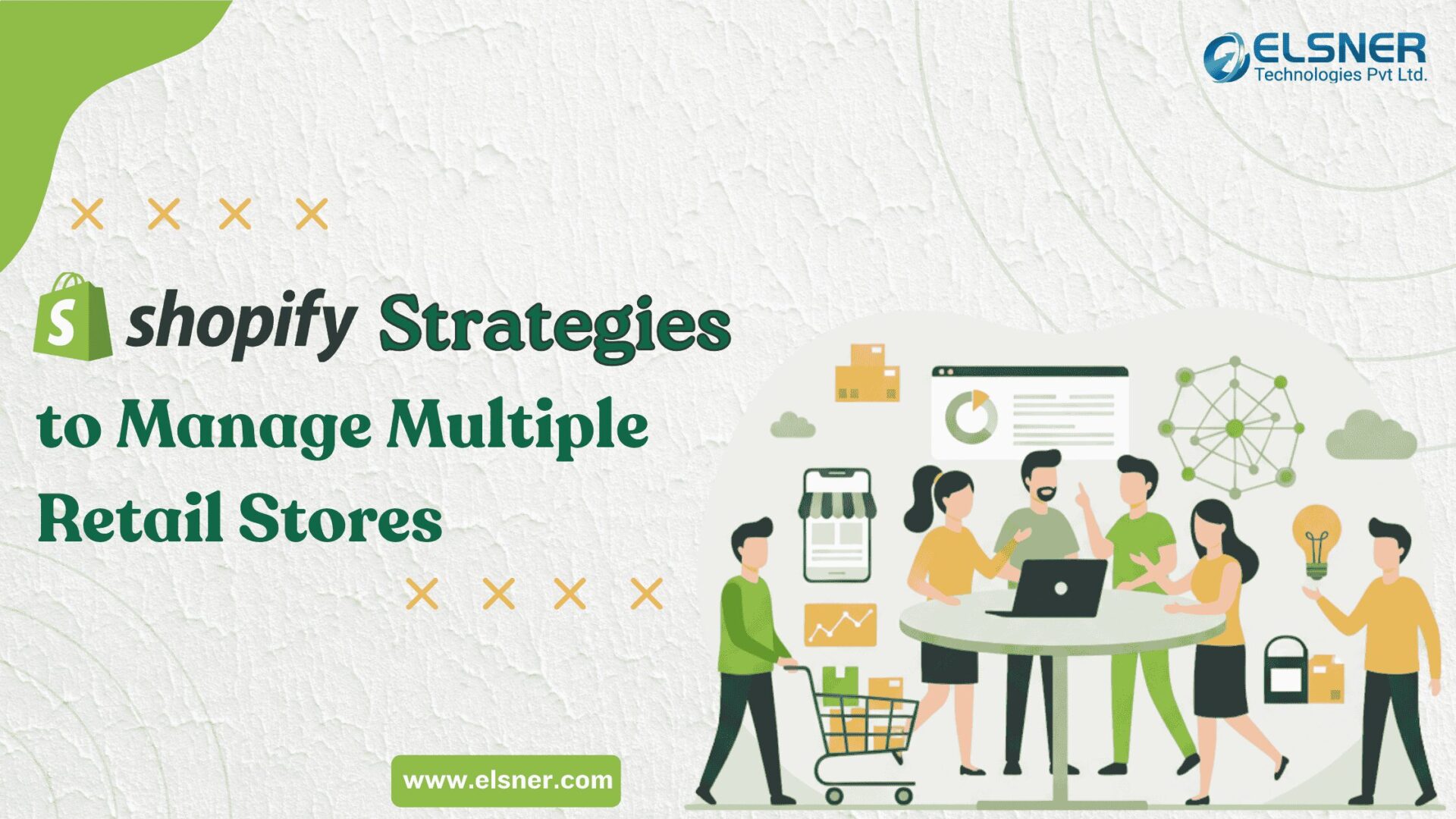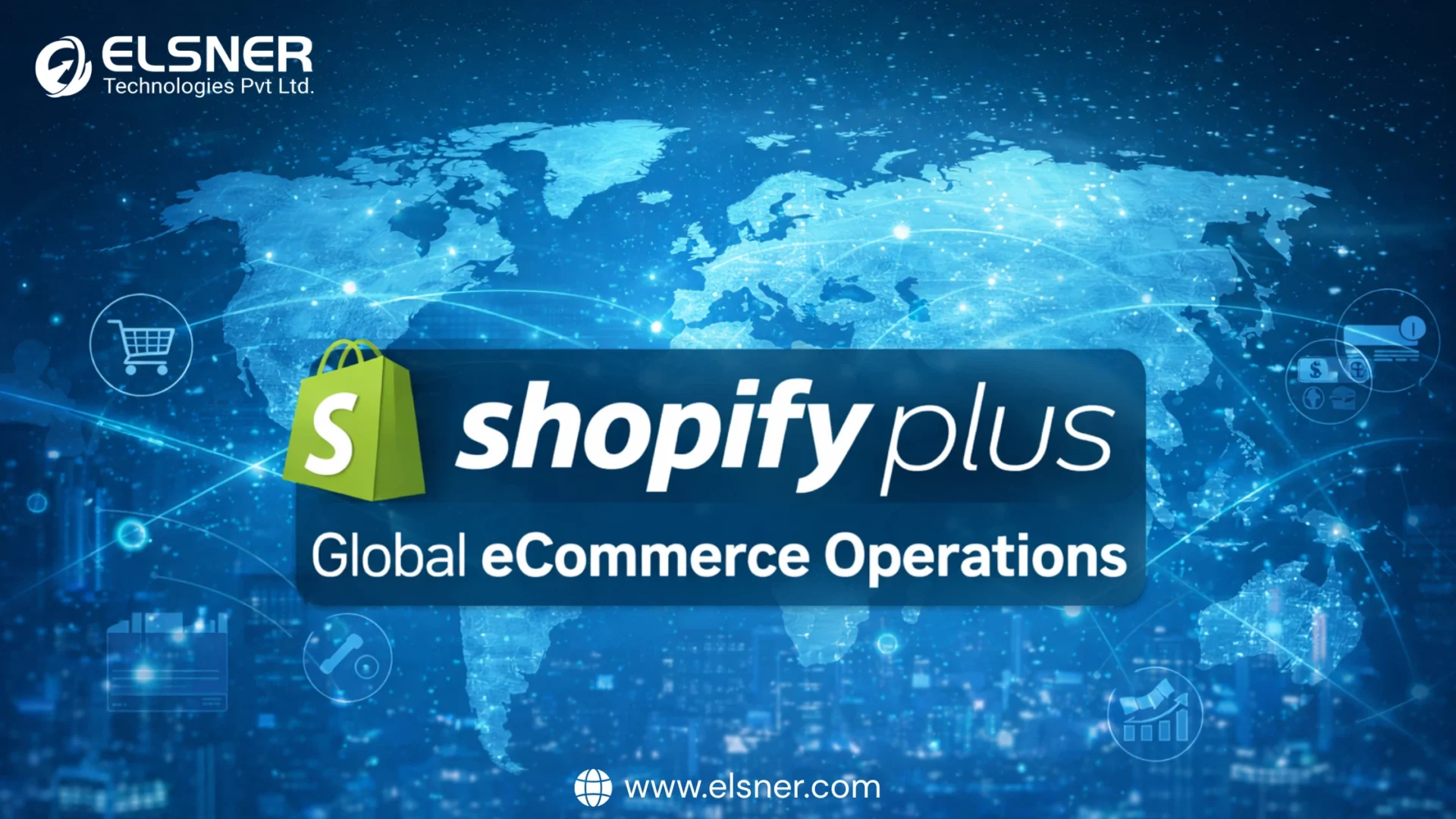- Why Multi-Store Management Feels Like Chaos?
- Inventory Nightmares
- Pricing Confusion
- Scattered Customer Data
- Manual Process Overload
- 10 Smart Strategies Used by a Shopify Development Company That Actually Work
- 1. Central Command for Inventory
- 2. CRM Integrations
- 3. Dashboard Control Centers
- 4. Automation That Eliminates Errors
- 5. Brand Consistency That Builds Trust
- Transform Your Shopify Stores
- 6. Performance Tracking That Drives Growth
- 7. Global Reach Made Simple
- 8. Staff Management Without Headaches
- 9. Omnichannel Experiences Customers Love
- 10. Custom Solutions for Unique Problems
- Why Hiring a Shopify Website Development Company Pays Off?
- Deep Shopify Expertise
- Custom Application Development
- Faster Scaling Support
- Long-term Investment Returns
- FAQs
- Can one dashboard really manage multiple stores effectively?
- Should you hire Shopify experts for smaller multi-store operations?
- What role do app developers play in multi-store success?
Running multiple retail stores is tough. Really tough. Ask any business owner juggling three or four locations, and they’ll tell you the same thing.
The complexities pile up fast. Stock runs out at one store while another sits on excess inventory. Customers get confused by different prices across locations. Staff struggle with outdated systems that don’t talk to each other.
Here’s where smart business owners make a game-changing move. They partner with a Shopify development company. These experts know the pain points inside and out. They build solutions that actually work in the real world.
For brands planning long-term scalability, following a clear Shopify store development roadmap is essential to streamline operations and prepare for future growth.
The numbers don’t lie. Businesses that hire Shopify experts see operations smooth out within months. Costs drop. Customer complaints vanish. Growth becomes manageable instead of chaotic.
Why Multi-Store Management Feels Like Chaos?
Inventory Nightmares
Picture this scenario. A customer walks into your downtown location asking for a specific product. Your staff checks the system. It shows five units in stock. But the shelf is empty.
Stock levels become guesswork without proper systems. Manual updates create errors. Staff forget to log sales. The whole thing falls apart.
Pricing Confusion
Different stores charge different prices for identical products. Customers notice. They feel cheated. Social media amplifies their complaints.
Promotional campaigns don’t sync across locations. One store runs a 20% discount while another charges full price. Brand consistency disappears.
Scattered Customer Data
Customer information lives in separate silos. The downtown store knows Sarah bought a dress last month. But the mall location treats her like a stranger.
Loyalty programs fail to track purchases across locations. Personalized service becomes impossible. Customer relationships suffer.
Manual Process Overload
Staff spend hours updating spreadsheets. They manually reconcile sales reports. Simple tasks eat up valuable time.
Mistakes multiply with manual processes. Wrong numbers create wrong decisions. Business growth stalls under an administrative burden.
10 Smart Strategies Used by a Shopify Development Company That Actually Work
1. Central Command for Inventory
Smart retailers centralize everything. One system tracks stock across all locations. Real-time updates prevent overselling disasters.
Shopify apps sync inventory automatically. When downtown sells a jacket, all locations see the update instantly. No more embarrassing empty shelf moments.
Custom tools take this further. A Shopify development agency builds systems that predict demand patterns. They suggest optimal stock transfers between locations.
2. CRM Integrations
Unified customer databases change everything. Sarah’s purchase history follows her everywhere. Staff provide informed service regardless of location.
CRM integrations done by a Shopify development agency capture every interaction. Email opens, website visits, in-store purchases – everything connects. Marketing becomes laser-focused instead of spray-and-pray.
Personalization actually works when data flows freely. Birthday discounts arrive on time. Product recommendations hit the mark. Customer lifetime value jumps. Retailers can also benefit from POS and CRM integration for retailers which enhances customer experiences across multiple channels.
3. Dashboard Control Centers
Modern retail needs mission control. Custom dashboards developed by Shopify development services show everything at a glance. Sales figures, inventory levels, staff performance – all in one place.
Business owners check their phones and see the full picture. Which locations need attention? What products are trending? Where should marketing dollars go?
Real-time alerts prevent small problems from becoming big disasters. Low stock warnings arrive before shelves are empty. System errors get fixed before customers notice.
4. Automation That Eliminates Errors
Order fulfillment becomes bulletproof with proper automation. Systems choose the best fulfillment location automatically. Shipping costs optimize themselves.
Customer orders route intelligently. Someone in Chicago gets their package from the nearest warehouse. Delivery times shrink. Shipping costs drop.
By leveraging Shopify AI and automation features retailers can further streamline processes, reduce manual errors, and deliver faster, smarter customer experiences.
Tracking information updates automatically. Customers know exactly where their packages are. Support tickets decrease dramatically.
5. Brand Consistency That Builds Trust
Every location should feel like the same brand. Same colors, same messaging, same experience. Customers shouldn’t guess which store they’re in.
Custom development done by a Shopify development agency ensures visual consistency. Templates lock in approved designs. Staff can’t accidentally break brand guidelines.
Marketing materials stay on-brand across all channels. Print, digital, in-store displays – everything matches perfectly.
Transform Your Shopify Stores
Centralize inventory, unify customer data, and automate your multi-store operations. Scale your business with expert Shopify support today!
6. Performance Tracking That Drives Growth
Data visualization transforms raw digits into actionable insights. Which products sell best where? What times drive peak traffic? Where should expansion happen next?
Revenue tracking by location reveals hidden patterns. The mall store might excel on weekends while downtown dominates lunch hours.
Performance comparisons identify best practices. Top-performing locations share successful strategies. Weak locations get targeted support.
7. Global Reach Made Simple
International expansion doesn’t have to be complicated. Multi-currency support handles pricing automatically. Language localization adapts content for different regions. You can partner with a Shopify app developer to develop relevant apps for your business.
Payment methods adjust by location. European customers use their preferred options. Asian markets get locally trusted gateways.
Tax calculations happen automatically. Complex international tax rules become invisible to customers. Compliance stays bulletproof.
8. Staff Management Without Headaches
User roles eliminate security risks. Store managers access their location data only. Corporate executives see everything. Part-time staff get limited permissions.
Training becomes consistent across locations. New hires learn the same systems everywhere. Knowledge transfers smoothly between stores.
Performance tracking identifies star employees and struggling team members. Recognition programs reward excellence. Additional training targets specific needs.
9. Omnichannel Experiences Customers Love
Modern shoppers expect flexibility. Browse online, buy in-store. Purchase online, pickup locally. Return anywhere, get refunded everywhere.
Omnichannel experiences ensure inventory visibility across all channels. Online shoppers see real-time store availability. Local pickup options appear automatically.
Customer service improves dramatically. Support agents access complete purchase histories. Problems get resolved faster across all touchpoints.
10. Custom Solutions for Unique Problems
Off-the-shelf tools hit walls eventually. Every business has unique needs. Custom applications developed by a Shopify app developer bridge those gaps perfectly.
Specialized integrations connect existing systems. Legacy software doesn’t become a limitation. Everything works together seamlessly. Scalability gets built in from day one. Systems grow with business expansion.
Why Hiring a Shopify Website Development Company Pays Off?
Deep Shopify Expertise
A Shopify website development company knows every feature, limitation, and workaround. This expertise prevents costly mistakes that amateur implementations often create.
Platform updates don’t break custom systems. When you hire Shopify developers, they anticipate changes and build accordingly.
Custom Application Development
Custom apps address specific business requirements exactly. No compromises or awkward workarounds needed.
Integration capabilities expand infinitely. Connect any system to Shopify with proper development resources.
Faster Scaling Support
Growth creates new challenges quickly. Professional Shopify development services respond immediately. Problems get solved before they impact customers.
Long-term Investment Returns
Initial development costs pay for themselves rapidly. Operational efficiency improvements compound over time. Customer satisfaction scores increase measurably.
Technical debt doesn’t accumulate with professional development done by a Shopify App Development Company. Systems stay maintainable and upgradeable.
FAQs
Can one dashboard really manage multiple stores effectively?
Absolutely. Custom solutions developed by a Shopify app development company consolidate everything into a single interface. Store managers access relevant location data. Corporate executives see enterprise-wide metrics. Role-based permissions ensure appropriate access levels.
Should you hire Shopify experts for smaller multi-store operations?
Complex operations benefit enormously from expert help. Even two-store operations see significant improvements. Professional development prevents expensive mistakes that amateur implementations often create.
What role do app developers play in multi-store success?
App developers from a reputed Shopify app development company build the connectivity tissue between systems. When you hire Shopify developers, they create automation that eliminates manual processes. Custom applications address unique business requirements that generic tools can’t handle.

About Author
Dipak Patil - Delivery Head & Partner Manager
Dipak is known for his ability to seamlessly manage and deliver top-notch projects. With a strong emphasis on quality and customer satisfaction, he has built a reputation for fostering strong client relationships. His leadership and dedication have been instrumental in guiding teams towards success, ensuring timely and effective delivery of services.





